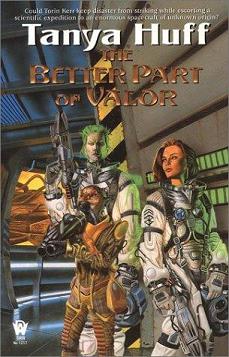Existence required order, and there was order; the laws of nature, irrevocable and immutable. Men could learn to use them, but men could not change them. The circumference of a circle was always pi times the diameter, and no science of man would ever make it otherwise. The combination of chemical A with chemical B under condition C invariably produced reaction D. The law of gravitation was a rigid equation, and it made no distinction between the fall of a leaf and the ponderous circling of a binary star system. The nuclear conversion process powered the cruisers that carried men to the stars; the same process in the form of a nova would destroy a world with equal efficiency. The laws were, and the universe moved in obedience to them. Along the frontier were arrayed all the forces of nature, and sometimes they destroyed those who were fighting their way outward from Earth.
That’s the message that “The Cold Equations“, Tom Godwin’s best known story (to be honest, the only story he really is known for) wants you to take away from it. It’s the melodramatic story of an emergency dispatch ship (EDS) pilot who discovers a stowaway on board and knows he has to immediately shove him out of the airlock, or otherwise he won’t have enough fuel to reach the colony he’s on his way to, his ship having just enough fuel to reach that. But then it turns out the stowaway is not some swarthy space bandit but *gasp* a young, innocent girl wanting to visit her brother in the colony. Our hero now has a moral dilemma, but the cold equations of space leave no other room than for the girl to sacrifice herself to save the ship.
For all its melodrama it’s an incredible effective story, if you don’t think too much about it, pitting a certain science fiction reader’s desire to be the kind of hard man who knows some sacrifices are unavoidable against the very same fan’s belief that there always is a solution. Even now, almost sixty years after its first publication it’s still a subject for debate as so many people want to deny its central message, that the laws of nature have no place for human values, that some deaths are unavoidable.
I’m one of them. Because the situation that “The Cold Equations” sketches is avoidable and as a result the story ends up not to be so much a parable for the cold, uncaring cruel laws of space as it is a demonstration of the necessity of good health and safety laws.
Lets start with basics: you have these huge space cruisers that fly between colonies which have a couple of EDS ships on board in case a colony not on the itenary needs urgent help. These EDS shuttles are sent out with the bare minimum of fuel needed to reach the colony. Even without the problem of stowaways, there are other situations in which a ship might need more fuel than the bare minimum to reach its goal; why skimp on this safety margin? But worse is that the story makes clear that there are no real safety measures to keep passengers on the cruiser to reach an EDS, or any real attempt to discover stowaways before the EDS leaves the cruiser. Sure, there’s a sign saying that the EDS is off limits to unauthorised personnel, but that’s hardly a real safety measure…
And this is not because the (fictional) company running these spaceships is sloppy and negligent, but because Tom Godwin, the author, needs this to setup the situation he wants of the innocent girl stowaway doomed to die because at that point the harsh laws of space permit no other outcome. But before this situation can be set up he therefore has to omit a lot of common sense safety measures that would’ve prevented it from arising in the first place.
And if you’re trying to prove a political point by arguing that the laws of physics make certain measures necessary, that killing some people is sadly necessary for the greater good, it behooves you to make sure that the situation you’ve chosen to illustrate this harsh fact is in fact not completely avoidable with some common sense precautions.
